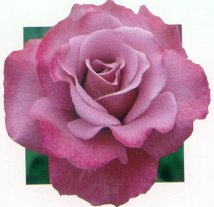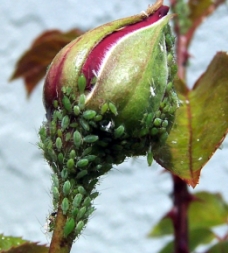Tips on How to Care For Roses

Light and Watering Requirements
Roses require regular watering & like a sunny location. Water about 2-3 times a week during hot Summer months, giving your roses about 3 to 7 gallons of water a week depending on your soil. During the Winter months, roses only need to be watered during periods when no rain has fallen for a couple of weeks. Roses in pots may need daily watering during the Spring, Summer, and Fall depending on the size of the container they are in.
Fertilizing Schedule
During the growing season, roses should be fertilized about every 6 weeks with Master Start (5-20-10) or EB Stone Rose and Flower Food (5-6-3). If you prefer using liquid (water soluble) fertilizers, we recommend Master Nursery Bud & Bloom (10-52-8). Remember that while liquid (water soluble) fertilizers are faster acting, they require more frequent applications throughout the year. It is important to use a fertilizer that contains iron, zinc, and magnesium or use a supplement that contains these trace minerals for best blooms. In addition, roses benefit from occasional applications of Magnesium Sulfate (Epsom Salts), usually applied at the beginning of the season, to promote larger flowers. During the winter months, we recommend applying Master Bloom or EB Stone Ultra Bloom (0-10-10) monthly beginning in November and continuing through January.
Pruning
Roses can be pruned throughout the year. Roses, generally will flower better with a light pruning after each bloom cycle (every 6 to 8 weeks). For traditional roses (Hybrid Teas, Floribundas, Climbers, Grandifloras) a heavy or dormant pruning is usually done in late December to early January. Remember to clean all leaf debris from the surrounding area after pruning. For carpet or drift roses, pruning can be done throughout the year as well. To maintain desired height, it is recommended to do a heavy pruning in late winter to early spring. When pruning carpet or drift roses, you can simply trim them like any other shrub in the yard.
COMMON PROBLEMS
Insect Problems

Probably the most common insects that tend to bother roses are aphids. They are usually found on the new growth and new rose buds (as can be seen in the picture to the right). Control of these insects can be handled through several different methods. Some options for controlling aphids are: 1.The use of Bonide Systemic Rose & Flower Care, a 2-in-1 systemic rose food (a fertilizer that also contains an insecticide). This fertilizer/insecticide would also protect the roses from other pests, like rose cane borers. Or 2. The use of ladybugs in the Spring. Ladybugs can be applied at the base of your roses in the evening and then will crawl up your rose plants and begin eating the aphids. They will then hopefully lay eggs that will create several generations of ladybugs. Or 3. The use of an insecticide to kill the insects on contact. An organic insecticide that works well is the Take Down Garden Spray. Another effective insecticide is Bonide Eight. When using insecticides, several applications may be required to achieve best control. As a preventive measure, roses can be sprayed during the winter months with a dormant oil (Master Nursery Horticultural Oil) to get any unwanted pests that may be trying to overwinter on your rose bushes. For further information about insect control, please ask us at Mid City Nursery.
Disease Control
To best control diseases, such as black spot, rust, powdery mildew, and downy mildew, spray on a regular basis, especially in the Spring (when most of these diseases are more prevalent). Regularly check your roses for any signs of disease; early detection is best. There are many fungicides to select from. We recommend Monterey Liqui-Cop or Monterey Fungi-Fighter for control of most rose diseases. Whether spraying with a copper fungicide or other fungicides, it is best to spray in the morning when it is cool. Make sure the plants are well hydrated before spraying. This will reduce the possibility of spray damage. Be sure to follow the manufacturer's directions when spraying. Also, during the winter months, Liqui-Cop should be used on the dormant roses to reduce disease issues that may be lying dormant.